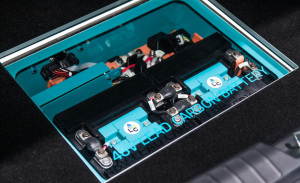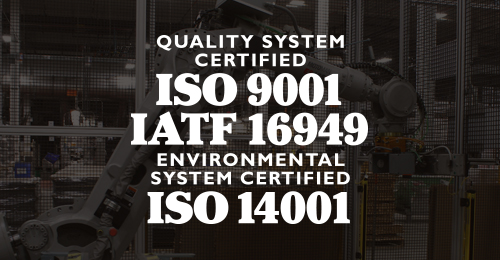Kia Motors recently stirred some attention at the 2014 Paris Auto Show when it displayed its Optima T-Hybrid (turbo-hybrid) concept vehicle, which utilizes a 48-volt lead-carbon battery system. The 48-Volt system utilizes UltraBatteryⓇ technology made by East Penn.
The car’s diesel-electric mild-hybrid powertrain, which was based on the LC SuperHybrid concept and introduced earlier this year at the Geneva Motor Show, is the first of its kind to be demonstrated by a major automaker.
The 48V lead-carbon battery system powers the 15-hp electric motor and electric supercharger in support of the vehicle’s 1.7-litre turbo-diesel engine. The system not only provides enhanced performance and increased torque, but also can significantly reduce CO2 emissions and fuel consumption at minimal cost.
Parent company Hyundai Motors introduced a similar version under their brand, the i40 48V Hybrid, which also utilizes a lead-carbon battery but without the electric supercharger. The automakers selected the lead-carbon battery over a lithium battery because of its excellent power-to-cost ratio, rapid charging capability, and high levels of durability, in addition to the fact that it requires no active cooling system and is highly recyclable (99%).
While no plans have been confirmed yet for mass production, the lead-carbon diesel-electric hybrid powertrain may be under consideration for the next generation of vehicles from both Hyundai and Kia.
Full press release from Kia Motors
Full press release from Hyundai Motors
Read what Car and Driver had to say
Read what the Green Car Congress had to say
About the ALABC
The Advanced Lead Acid Battery Consortium is an international research cooperative comprised of lead producers, battery manufacturers, equipment suppliers, and research facilities organized to enhance the performance of lead-acid batteries for a variety of markets, including hybrid electric vehicle (HEV) applications and various energy storage systems. Founded in 1992 as a program of the International Lead Zinc Research Organization (ILZRO), the ALABC pools the resources of its global membership in order to perform specific research on advanced lead-acid batteries that otherwise would not be possible by any single entity. For more information about the ALABC and its accomplishments, visit www.alabc.org.
Released by The Advanced Lead Acid Battery Consortium. For more information contact Chip Bremer


